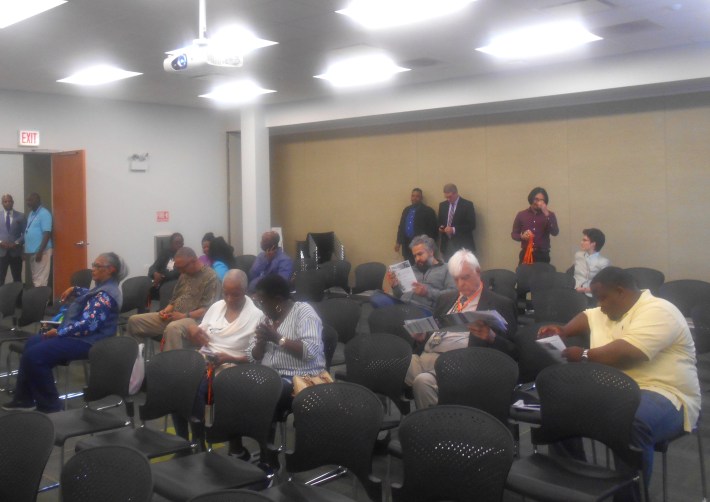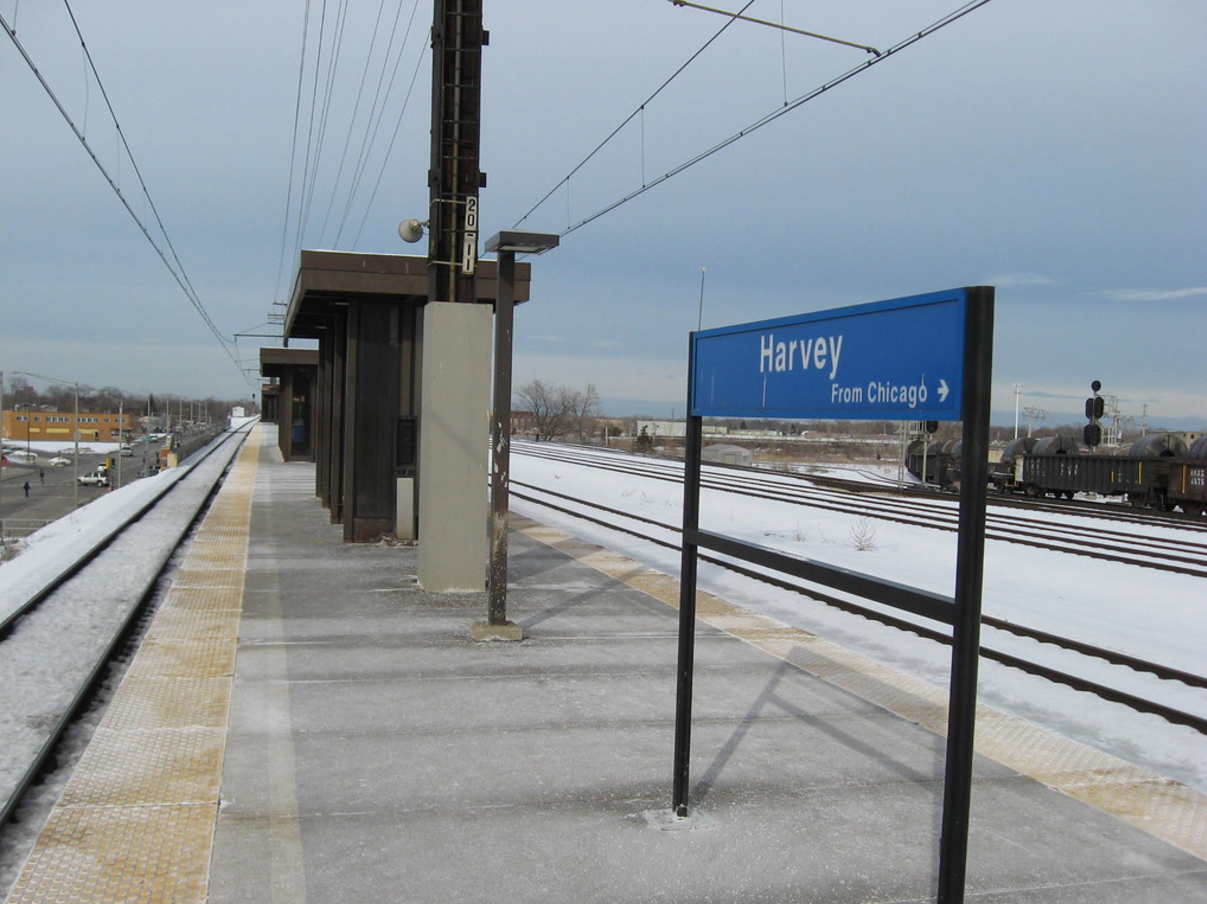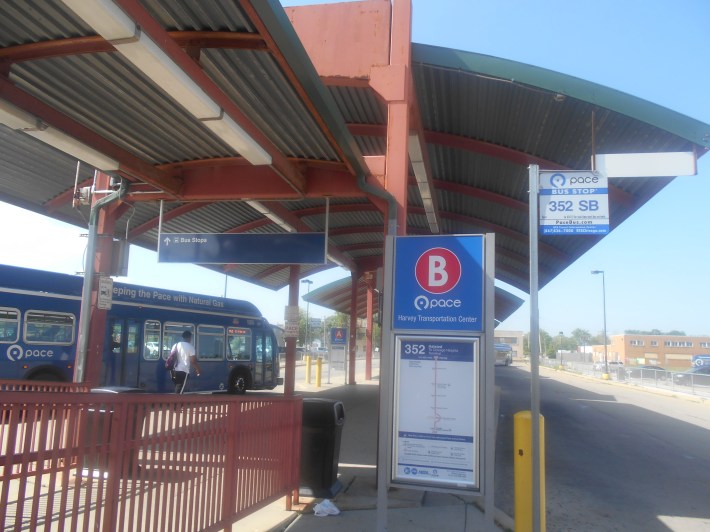At a June 18 town hall event, Cook County, Metra and Pace unveiled a plans for a potential pilot that could radically alter Metra service in the south suburbs – and bring the Grey Line/Gold Line proposals for rapid transit service on the Metra Electric District line much closer to reality.
The pilot would apply to the MED and Rock Island District lines. Within the city of Chicago, the ticket prices would $2.50, the same as a ride on the 'L'. For suburban stations within Cook County, the ticket prices would be two fare zones lower than current rates. For example, the ticket price for a trip between suburban Harvey and the Loop would drop from $6.25 to $4.25. In addition, riders would be able to transfer to CTA and Pace routes for free.
But fans of the Gold Line and other ideas that would make the Metra Electric more ‘L’-like shouldn’t celebrate quite yet. As the officials at the town hall made it clear, the concept is still in the early stages, and Cook County, Metra and Pace need to figure out exactly how much of that plan they can pull off, and what it would cost. And, as it stands, there is no concrete timeline attached to any part of the process.
The hearing took place at the Harvey Public Library, within the walking distance of Harvey Transportation Center – which includes the region’s busiest bus terminal and the city’s MED station. The event was meant to introduce the proposal and give the residents a chance to weigh in on the plan and discuss improvements they would like to see in their local public transit. Two sessions were held, one in the early afternoon and one in the early evening. I attended the earlier one.
Jennifer “Sis” Killen, the assistant superintendent of transportation and highways for Cook County, explained that the idea for the reduced fares came out of the county’s south suburban mobility study, which “looks at transportation across the agency lines.”
Benet Haller, the county’s transit manager, said that the study compared transit options with the number of transit-dependent riders. “What this very clearly shows is that the southern part of Cook County has greatest amount of transit-dependents and least access to transit,” he said.
Another issue, Haller explained, was that while all Metra lines saw a drop in ridership during the Great Recession, the ridership on Rock Island District and Meta Electric lines “never had any uptick” afterwards, even as other lines’ ridership started to recover. And Pace’s overall ridership declined after 2013.
The study looked at several possible scenarios for improving transit options and encouraging ridership, and looked at costs versus benefits. Haller explained that beefing up service along Metra Electric line, reducing fares in Chicago and the Cook County suburbs and offering free transfers would increase expenses – but the increased ridership would make up for it. And the fact that, unlike some of the other options, it wouldn’t require the transit agencies to build new stations and/or track means that there would be fewer costs up front.
“Making those service changes would be comparatively fast, compared to creating new line/changing the existing line,” Haller said. He said that the service would be increased in both directions rather than just beefing up rush hour commuter service, improving options for reverse commuters.
Today, riders who want to travel from Harvey to Chicago can either take the Metra Electric, or take Pace route 352 and transfer to the 95th Street Red Line station. While the former option is faster, the latter option is cheaper and more frequent. Haller said that he expected the reduced prices, more frequent trips and the convenience of a single ride would make the Metra Electric a more attractive option. Haller readily acknowledged that making the MED cheaper may hurt ridership for both Pace and CTA buses, and that the two agencies may have to adjust their schedules accordingly.
Both the Metra Electric and Rock Island District lines have branches that are either fully or partially located within Chicago city limits. It is not currently clear what kind of service changes, if any, those branches will see.
In response to follow-up questions, Haller clarified that the fare reductions would also apply to Metra Electric’s University Park station, even though it’s in Will County. Leaving its fare at $7.57 while reducing the fare at the next station over, the Rickton Park station, from $7.25 to $6.25, he said, would probably result in a steep drop in boardings in University Park.
Haller also specified that the pilot wouldn’t apply to Hegewisch South Shore Line station, even though it’s within the city and Metra sets its fares. Hegewisch riders currently pay $6.25 to ride the South Shore to the Loop – 2.5 times the ‘L fare – and $5.50 to get to Hyde Park.
One major takeaway from the town hall was that many residents don’t take transit because they're worried about crime. Several specifically mentioned that they were afraid to use the Harvey Transportation Center, especially in the evening. Metra CEO Jim Derwinski said that he was well aware of the issue, and assured them that Metra has been working with local police departments to improve safety at Metra Electric stations.
“Obviously, I’m reminded that some pieces of the system aren’t as safe as others,” he said, adding that, while there has been progress, Metra and the municipalities simply don’t have resources to “have cars on every station” and “a police officer on every train.”
Metra is already doing two pilots in effort to boost ridership along the two lines. As part of a larger fare zone pilot, several stations on both lines, mostly on the South Side of Chicago, were shifted one fare zone closer, reducing prices. And, this summer, Metra beefed up weekend service along Rock Island District’s main line.
Metra spokesperson Michael Gillis said that those pilots and the proposed service restructuring pilot won’t affect each other – especially since the later is still ways off. “The idea is that the Cook County put it out there, to see what we can do together,” he said. “We have to decide – do we do parts of it or the whole? We haven’t even began looking at [the details] of that one.”

In the meantime, the residents who attended the hearing said that the concept was promising. Reginal Thompson said that he uses a combination of Metra, Pace and CTA services every day to get around, and he would definitely appreciate more frequent and cheaper Metra Electric service.
Wylma Harmon, who lives in Calumet City and usually takes a bus and transfers to Metra Electric at Harvey, said she was glad to see something like this is being considered at all. “It’s exciting to know that the south [suburbs] are not forgotten,” she said. “There’s room to grow."







